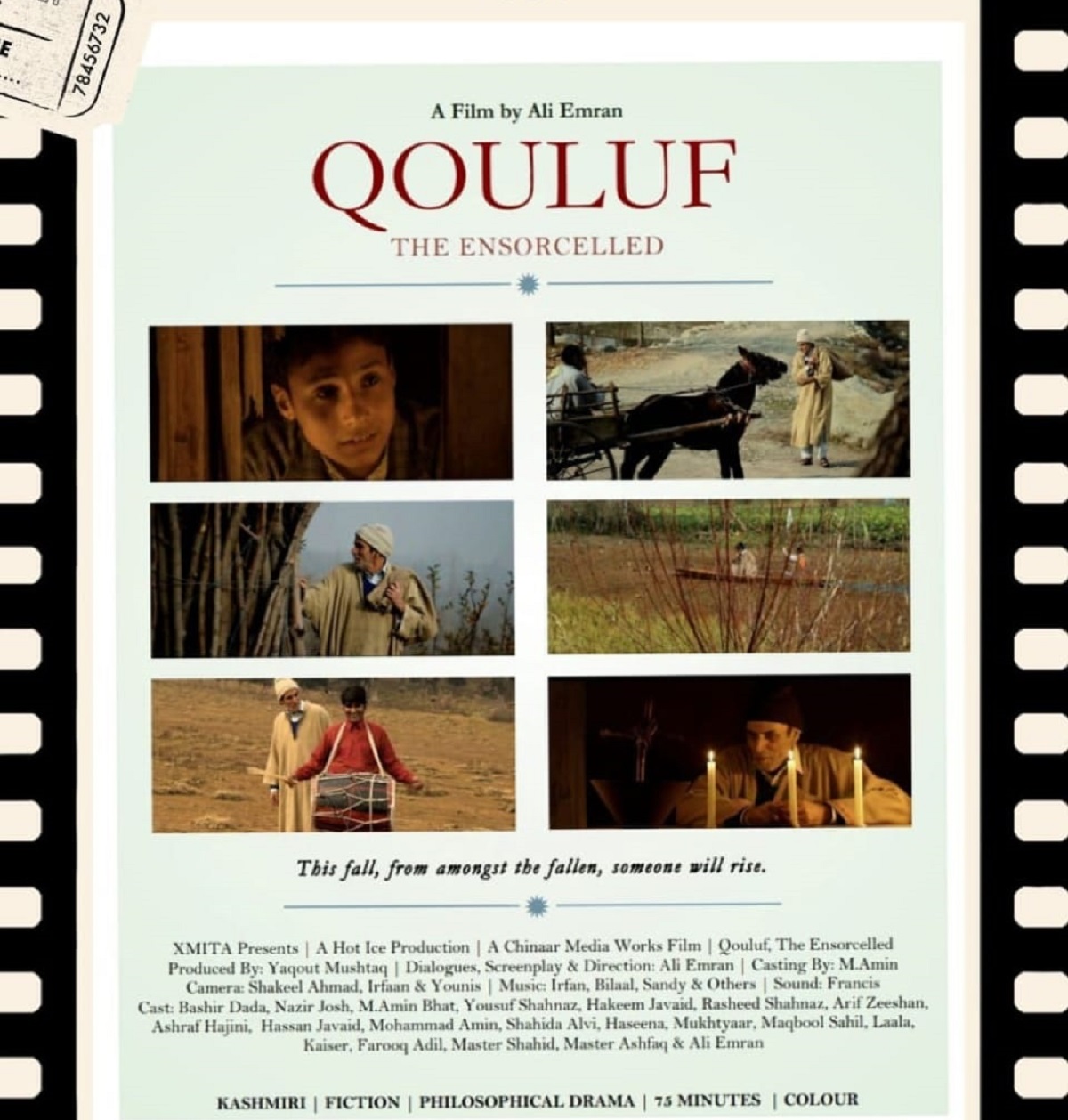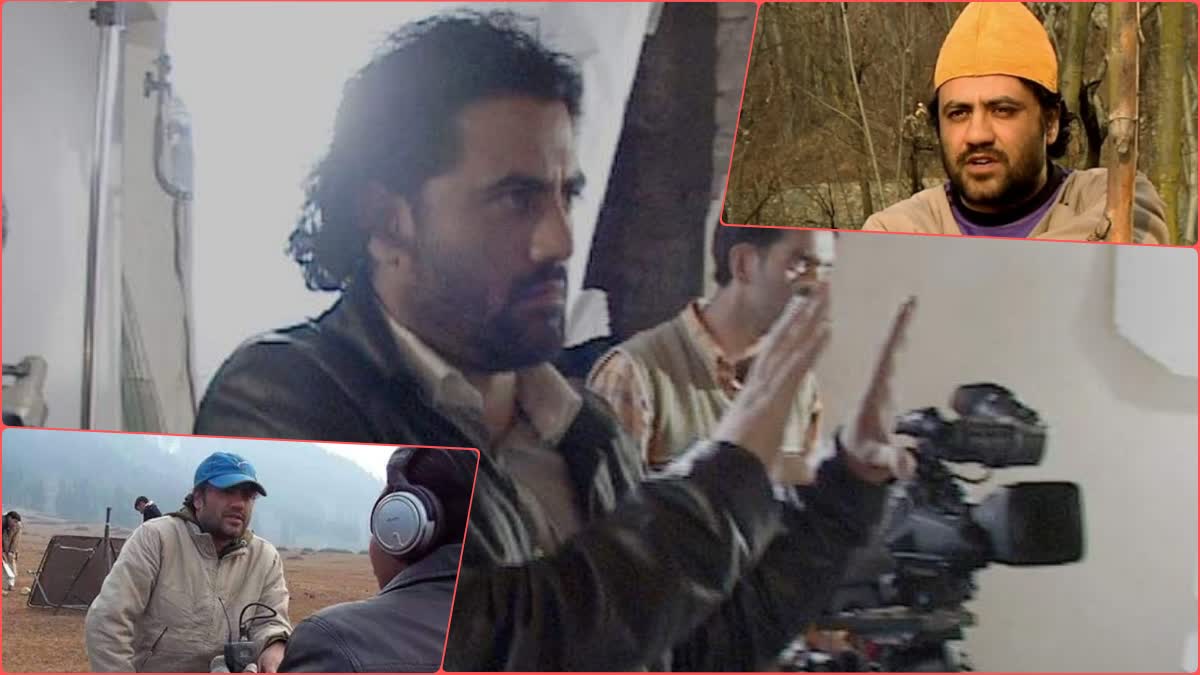Srinagar: After nearly six decades of hiatus, a Kashmiri-language film was shown at a cinema hall here. The historic return of native language film to Kashmir's troubled theatres witnessed the debut of the Kashmiri feature film "Qouluf," directed by well-known filmmaker Ali Emran.
Based on Kashmir’s indigenous philosophy of Sufism, the film premiered at Inox Srinagar and received a huge appreciation from the audience, filmmakers, and critics alike for its story and its direction.
Qouluf's premiere was a historic moment in Kashmir since it is the first Kashmiri-language feature film to be shown in a movie hall in almost six decades. The last Kashmiri-language film to be shown in Kashmiri cinemas was "Maez Raat" in 1964.
“Before creating waves in the valley, Qouluf was a top-performing film at the International Kolkata Film Festival, Best of India Cinema, and other festivals,” says Emran. The success demonstrates his dedication to promoting indigenous art, culture, and philosophy on a world stage.

As a director, the 40-year-old Srinagar native has already made a name for himself with other films in Urdu and Kashmiri languages, including “Ibtida,” “Ninth Act,” “Know Me,” and others, which have made a place in many national and international film festivals.
Emran has studied engineering but he says he has always been interested in cinema, narrative writing, and poetry since his school days. “My love for films turned intense when I began attending film festivals during my engineering in Delhi, where I began to study and learn filmmaking from story to directing,” he says.
“During my college days, I made a short film called ‘Ninth Act’ in which I blended documentary realism with narrative artistry. This film set the stage for my career as a filmmaker,” he says. “It was an experimental film dedicated to unpacking complex socio-economic themes with sensitivity and depth. It helped me delve deep into the art of filmmaking and gave wings to my aim in life.”
After the “Ninth Act," he made another short film, ‘Know Me’, which was shown at the Mumbai Film Festival at that time. “My work was highly appreciated, after which I decided to take filmmaking as a profession fullfledged,” Emran says.
He is coming up with another film called “Baand,” which is based on the folk theatre of Kashmir and the lives of artists associated with it. “This film will showcase the performing art and cultural heritage of Kashmir and celebrate the resilience of local artists striving to keep their traditions alive in a rapidly changing world,” he says.
Emerging from the enchanting landscape of Kashmir, Emran has carved out a significant niche as a filmmaker renowned for his ability to intertwine philosophical themes with profound emotional narratives.
Since his foray into filmmaking in 2006 with “Ninth Act," he has garnered recognition as one of the most innovative voices in Kashmiri cinema, captivating audiences with stories that linger long after the credits roll.
While Emran's work transcends conventional storytelling, he says the art of filmmaking is a difficult and extremely delicate task. “It is impossible to direct without skills and training.”
Apart from films, Emran says he used his skills in theatre and dancing. “I have directed many plays, and a musical play, ‘Dream Sellers,’ is close to my heart as I get a chance to showcase it at the Stein Auditorium in New Delhi,” he says, adding that it's a harmonious blend of music, movement, and storytelling.
His adaptation of Agha Shahid Ali’s poignant poetry collection, “The Country Without a Post Office,” is another well-received play at the national level. It was first played at Delhi’s Kamani Auditorium.
Emran has also shown his acting skills in his films and has also written many interesting scripts, and very soon he is going to direct a Bollywood film. “The shooting of the Bollywood film will start next year. Currently, we are preparing music for it,” he says.
Bollywood's Kashmir relations have been reconnected while cinema returned here again. Emran says that now the filmmakers here are not only increasing their interest in making films locally but also getting easier access to Bollywood.
"But we need to be more proactive and get trained so that we make our mark felt despite challenges,” he says.
Read More



